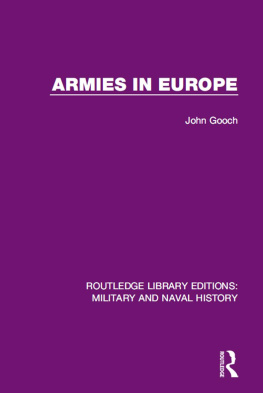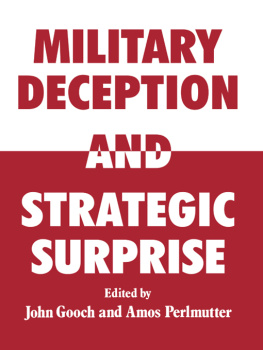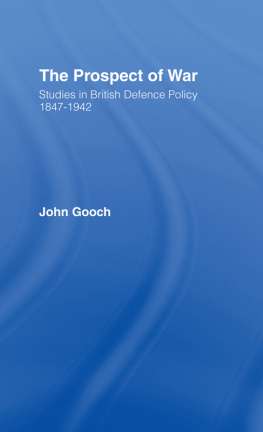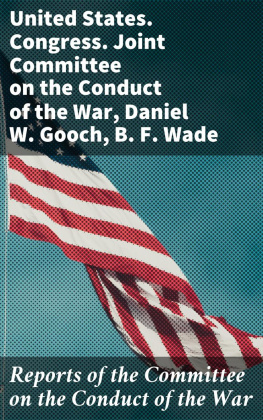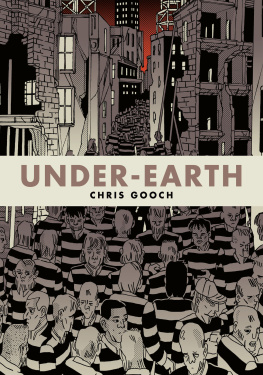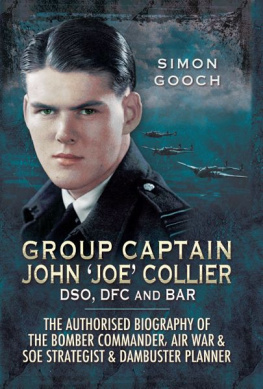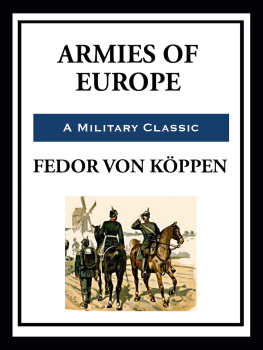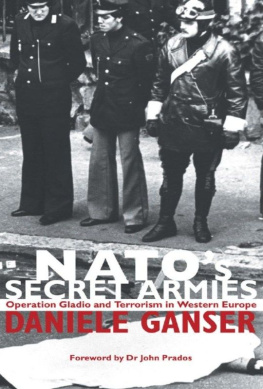ROUTLEDGE LIBRARY EDITIONS: MILITARY AND NAVAL HISTORY
Volume 14
ARMIES IN EUROPE
ARMIES IN EUROPE
JOHN GOOCH
First published in 1980
This edition first published in 2016
by Routledge
2 Park Square, Milton Park, Abingdon, Oxon OX14 4RN
and by Routledge
711 Third Avenue, New York, NY 10017
Routledge is an imprint of the Taylor & Francis Group, an informa business
1980 John Gooch
All rights reserved. No part of this book may be reprinted or reproduced or utilised in any form or by any electronic, mechanical, or other means, now known or hereafter invented, including photocopying and recording, or in any information storage or retrieval system, without permission in writing from the publishers.
Trademark notice: Product or corporate names may be trademarks or registered trademarks, and are used only for identification and explanation without intent to infringe.
British Library Cataloguing in Publication Data
A catalogue record for this book is available from the British Library
ISBN: 978-1-138-90784-3 (Set)
ISBN: 978-1-315-67905-1 (Set) (ebk)
ISBN: 978-1-138-93266-1 (Volume 14) (hbk)
ISBN: 978-1-315-67906-8 (Volume 14) (ebk)
Publishers Note
The publisher has gone to great lengths to ensure the quality of this reprint but points out that some imperfections in the original copies may be apparent.
Disclaimer
The publisher has made every effort to trace copyright holders and would welcome correspondence from those they have been unable to trace.
Armies in Europe
John Gooch
First published in 1980
by Routledge & Kegan Paul Ltd
39 Store Street, London WC1E 7DD,
Broadway House, Newtown Road,
Henley-on-Thames, Oxon RG9 1 EN and
9 Park Street, Boston, Mass. 02108, USA
Set in 11pt IBM Baskerville by Columns
and printed in Great Britain by
Morrison & Gibb Ltd.
John Gooch 1980
No part of this book may be reproduced in
any form without permission from the
publisher, except for the quotation of brief
passages in criticism
British Library Cataloguing in Publication Data
Gooch, John
Armies in Europe.
1. Armies Europe History
I. Title
355.0094 UA646. 79-41297
ISBN 0 7100 0462 1
For my family

Much of the best history that has been written over the past two decades has dealt not with politics, economics or any of the more traditional areas of historical enquiry, but with the development of armies, with their roles in peace-time society, and with the many wars that have marked the course of modern history. Other types of history have their syntheses; this book attempts to put that work together in order to look at what is as self-contained a period as any from a less than traditional angle. The fact that comparative surveys of military affairs have, until now, largely been the realm of sociologists and political scientists was one of the reasons I attempted one, but having completed the task I can now well understand why other historians have, for the most part, avoided it. However, if the result serves to encourage readers to go to the many historians upon whose work I have drawn so heavily, then perhaps it will have performed a useful task. I owe a debt of great professional gratitude to all those whose works I have cited in my notes and in the bibliography at the end of this book; and to those who will detect traces of their work without the compensation of direct acknowledgment my debt, though inadequately publicized, is no less great.
That I have written this book at all is the result of the stimulation I derived from the teaching of Michael Howard. For that experience, and for his long-suffering readiness with help and advice ever since, I am deeply grateful.
Phillip Bell did all and more that a friend should ever be asked to do and read the entire manuscript in draft at a time when he was deeply involved in a demanding research project of his own. Without his gentle criticism and wise advice this book would be more heavily laden with errors and infelicities than it is. My colleagues Professor J.H. Shennan and Dr M.H. Merriman helped me wrestle the earlier chapters into a more satisfactory shape; and Ralph Gibson, who suffered from being only a few steps down the corridor, gave me valuable references to French material that I should otherwise have missed. To them all, my thanks.
I have benefited also from reading the doctoral theses of Dr I.F.W. Beckett, Dr E.R. Holmes and Dr M.S. Smith all of which works ought to be in print and from unpublished manuscripts by Professor John Erickson and Mr I. Worthington. To the authors, and to all the many undergraduates who have taken History 308 and have taught me much more than I can have taught them, I am much indebted.
To Ann, and to Alexander and Julia, I offer the book by way of thanks.
John Gooch
Forton,
Lancaster
A note on the title
This book is about armies, and not navies. There are many good reasons for this, of which the most compelling is that Europes navies deserve a book to themselves. Perhaps simple annoyance, if nothing else, will stimulate someone to write it.

In the age of combative nationalism which stretched from 1789 to 1945, and which yoked Napoleon to Hitler, the making of military preparations and the act of fighting were two of the most important activities in the life of any state. War was held to be not only a legitimate but also an effective means of furthering the interests of the state, resort to which could resolve those disputes which could not be controlled by the machinery of diplomacy. Conscription provided a means whereby the state both made provision to field large numbers of trained soldiers if war came and demonstrated the extent to which it was prepared to commit its resources to such a war if the need arose. The citizens obligation to perform military service when required to do so was one of the distinctive characteristics of the nation states as they developed in the nineteenth century, providing a counter-weight to the right to vote. In all respects the French Revolution seemed to draw a line which separated two distinct sets of attitudes towards war and military organization. The so-called Cabinet Wars of the eighteenth century are frequently portrayed as taking place outside the general confines of society; as gladiatorial combats held between bands of doughty or dubious professional soldiers and watched by crowds seated in safety round a bloodstained arena.conscripts of 1793 thus appears as an activity which was somehow less bloody and less burdensome for the bulk of society, which was called upon to pay its taxes but not to give its personal services.







